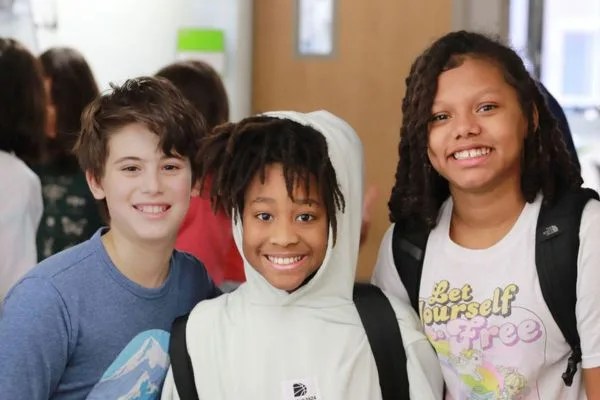Mom, I’m going to college, maybe Harvard,” said my 14-year old son Greg. “That’s great,” I said, but needed to temper his enthusiasm. “But it’s a really hard school to get into and a lot of kids apply for just a few openings. Anyway, it’s not just about having good grades, but you also have to take hard tests, write long essays, and even have a personal interview.”
In our twice-weekly Skype call, he was telling me about his grades, all As and one A-, but working hard on getting a 4.0. He’s had good grades for two years. And, for the first time ever, Greg loves school.
“But I am getting all As. Isn’t that what they look for?”
If it were so easy.
Yes, he’s succeeding academically. At 14, he is in ninth grade, but is not being taught at a ninth-grade level. He can phonetically read well, but his comprehension is at a third-grade level. He handwrites like a first-grader, including using stick figures, and it’s hard for Greg to color within lines. His grade levels for other school subjects vary anywhere from third to seventh grade — with math being his best subject, which is unusual with kids like him.
My naïve, fearless son has learning disabilities. On the surface, you see a tall, good-looking, friendly teen who is the “Norm of ‘Cheers’ ” in our neighborhood. Whether he walks into our supermarket, pharmacy, the bike store across the street, or just walking in and out of our typical New York City high-rise building, he’s da man; everyone knows his name. But — and it’s not immediately obvious — you slowly lose him when you start a typical conversation. Why wouldn’t you, not realizing anything is amiss?
His processing speed, the pace at which he hears what is being said, is much slower than the average 14-year-old; in fact, it is 300 times slower than we experience. While he is configuring the first sentence, you are already on sentence number five. Sometimes sarcasm goes over his head, and problem-solving is challenging. His expressive language is better, but still immature. A first impression of Greg is that he is a typical, hormone-raging guy who’s into sports and girls. With adults, he’s Mister Congeniality, and is quite advanced in certain areas. By the time he was 11, he was traveling around the city on his own, whether by foot or public transportation. He insisted on going to his first orthodontist appointment without me. And I was okay with that. It was something he could do. And if he got lost, he’d ask for help. He cooks and does his own laundry, and helps our neighbor — who is blind — cross the street.
Unusual for a teen on the autism spectrum, Greg is outgoing, friendly, funny, volunteers in the community, is fixated on weight training, and makes eye contact when spoken to. He enjoys fiddling around with broken electric machines.
Yes, Greg is hard to pin down; is there something different about him? I often forget, because when it’s just the two of us, he doesn’t have to work so hard. You really must delve deep to find it. But, he is. And he is very vulnerable to what others think.
I live in New York City, and Greg is currently at a therapeutic, eight-step residential program in Ogden, Utah, a very structured, restricted, yet loving environment. It wasn’t just his low cognitive aptitude that started me looking at more restrictive environments. What I wanted was a place where Greg could learn how to socialize with peers, make a friend, show interest in others, be patient, less impulsive, and less assumptive. For me, whether he was successful in academics was secondary. Was he going to college?
When we toured the school, Greg was quite enamored, especially with hanging with other boys in their residence in a large frat-like house. However, when I dropped him off for good, enamor turned to revulsion as it dawned on Greg that I was leaving, and he begged me to take him home. As I drove away, I cried and cried, harder than I ever remember crying before.
Greg fought it for a long time, which is typical for new students because his freedom, at least initially, was limited. All he wanted to do was come home.
“The kids are mean, the staff is strict, I hate school, I don’t have friends,” I heard. “Mom, I won’t be bad anymore! I promise. I want to come home!” My heart broke. I started second-guessing my decision. Did he really need such a restrictive environment? Did I make a mistake? He’s so young. Our Skype calls were consumed with the crying and anger, and it was exhausting; it was getting harder for me to stand my ground.
“Honey, you were never bad. Honest! That’s not why I found this school for you. I want you to learn to make friends and get a job and be successful.”
Many painful months passed until he started to get with the program, yet never fully. The program is eight levels and he is almost at level seven, the hard level. It’s all about learning healthy peer interaction, being conversational, knowing when to walk away, knowing when to tell a staff member, knowing how not to get sucked in to other’s bad behavior, understanding hierarchy, and taking accountability. (That’s a biggie. Nothing is ever his fault.)
The program has been an amazing learning experience for us both. As he and I have progressed, I have become more resolute about boundaries, rewards, consequences, and independence, and Greg has been more compromising and patient. A few months into the program, when I was no longer buying into his excuses, he asked his social worker, “What did you do with my mom?!”
As the program progressed, and we spent time together in Utah, I realized we were having fun. He didn’t whine about using the phone, he was a bit less rigid, and for the first time ever, we went to a restaurant without electronics, and somehow survived. (Okay, full disclosure, there was a Knicks game on the television, so that distracted us a bit.) At his first home visit after 18 months, a lot of what he and I learned fell into place, and we are feeling optimistic for the future. It’s been wonderful for him. He loves school (his words) — this from a kid who did everything possible to disrupt the teacher with antics and a foul mouth, who couldn’t read until second grade, and who walked out of the classroom, even the building, without permission. As the program is coming to an end, I have begun my search for another school, perhaps a little less restrictive, but still structured and therapeutic.
So back to the question; is it okay to lie to your kid? Will Greg go to Harvard? I know he won’t. What about a four-year college? Highly doubtful. Vocational training is more likely. Greg is talking about going into the Army, generally an idea feared by most parents. I would welcome it for its discipline and structure. What Greg doesn’t understand is, although his grades are top notch, he is not learning a ninth-grade curriculum, which means he won’t be learning a 12th-grade curriculum and be able to get a “real” high-school diploma.
But how do you tell your son that? Your son who is so proud of his accomplishments and grades and dead-lifting 200 pounds. A son who talks about being an NBA star. Is he athletic enough? Perhaps, if he practiced, practiced, practiced. Yet, we all know it takes more than physical excellence. We know, but he doesn’t.
So, what do you say to your son who has ambitions way beyond his ability? What do you say to your son who may or may not be able to work a decent job with a decent salary without pissing off the manager by deciding he’s bored and doesn’t want to do what he’s supposed to do?
I don’t know the answer. I do know that, for now, I want him to dream his dreams, because hey, you never know. But, there will come a day when at least a little dose of reality must be spoken. Greg knows he has learning issues, but doesn’t connect it to his options for the future.
Knowing my son, saying nothing now is the right option. But I don’t want to send him out into an unforgiving world not understanding his limitations and giving him hope that he is like everyone else. Is that my responsibility? Or should I let him figure it out the hard way? I’ll keep you posted.























